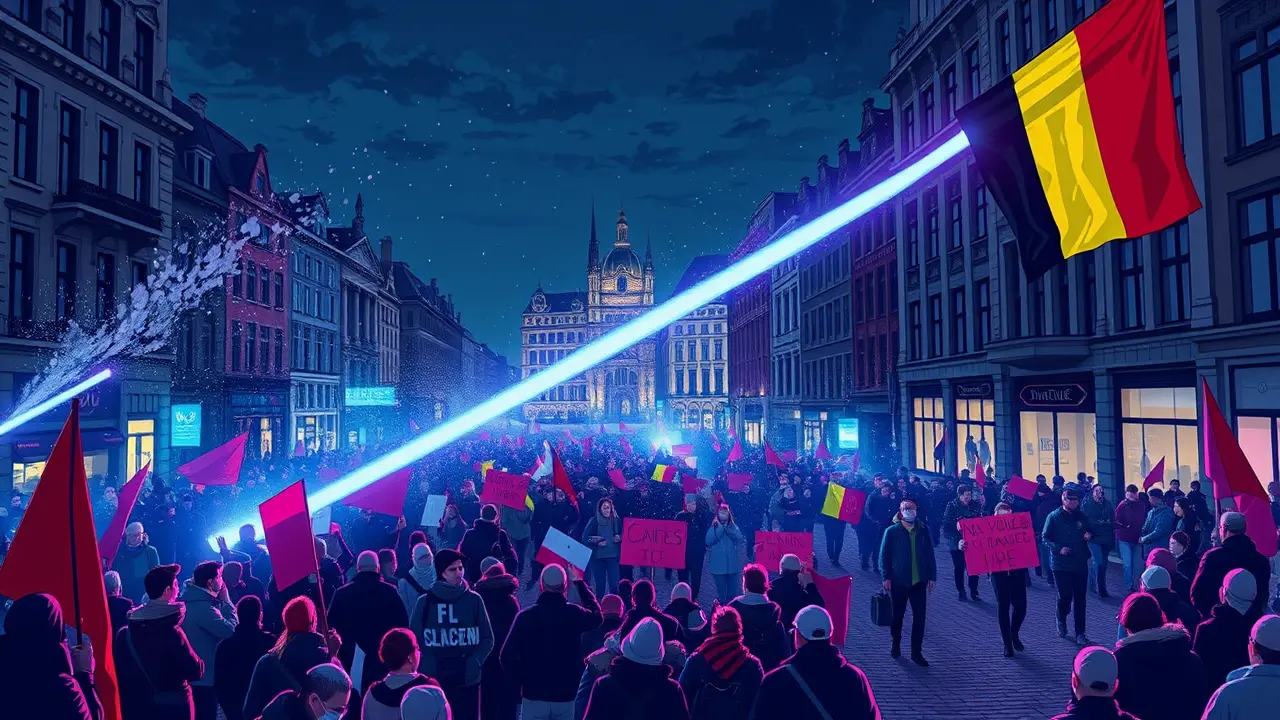Belgian Unions Strike Against Austerity and Welfare Cuts
The heart of Brussels convulsed on Tuesday, its grand plazas and cobblestone arteries transformed into a theater of civil discontent as Belgian trade unions launched a monumental national strike, a direct and furious rebuke of the government's proposed austerity measures and deep welfare cuts. This was not a mere protest; it was a raw, visceral eruption of public sentiment, a stark tableau where the chilling spray of police water cannons met the steely resolve of thousands of citizens who had decided that the social contract, as they knew it, was being torn up before their eyes.The images, broadcast across global news wires, were jarringly evocative of a deeper European malaise—the familiar, painful clash between the cold arithmetic of budgetary discipline and the warm, breathing reality of human dignity. To understand this day is to look beyond the immediate confrontation, to delve into Belgium's complex political tapestry, a nation often paralyzed by linguistic and regional divides yet finding a rare, unified voice in the defense of its hard-won social safety net.The proposed cuts, part of a broader fiscal consolidation plan, threaten to unravel decades of progress, targeting unemployment benefits, indexing wages to inflation, and raising the retirement age, measures that unions argue will disproportionately hammer the working class and the most vulnerable segments of society, plunging families into precarity for the sake of balancing ledgers. This strike, therefore, was a calculated, strategic escalation, a deliberate paralysis of the nation's trains, buses, and public services designed to demonstrate the very backbone of the economy—its people—and to force a recalculation in the halls of power.The government, led by Prime Minister Alexander De Croo, finds itself in an unenviable bind, caught between the stringent fiscal demands of a post-pandemic, high-inflation era and the explosive social consequences of implementing them. The police deployment of water cannons, while a standard crowd-control tactic in continental Europe, will inevitably be analyzed as a potent symbol of the state's response, a use of force that risks further alienating a populace already feeling unheard.Historical parallels are inescapable; one need only recall the waves of strikes that rocked France in the 1990s against pension reforms or the anti-austerity movements that swept Southern Europe following the 2008 financial crisis to see a recurring pattern where technocratic mandates collide with democratic dissent. The consequences of this standoff will ripple far beyond Belgium's borders, serving as a critical test case for other EU nations contemplating similar fiscal paths.Will the government, facing such formidable public pressure, be forced to negotiate a softer landing, or will it hold firm, risking a prolonged season of industrial action and social unrest? Expert commentary from political scientists like Dr. Isabelle Durant of the Free University of Brussels suggests that the legitimacy of the entire governing coalition is now on the line, their ability to govern effectively challenged not by an opposition party, but by the streets themselves.The protestors, a diverse coalition of young students fearing a diminished future and older workers guarding their pensions, carried a palpable sense of betrayal, their chants echoing not just against the grand facades of EU institutions but into the very conscience of a continent perpetually wrestling with the soul of its social market economy. As the water dried on the pavement and the crowds eventually dispersed, the fundamental question remained, hanging heavy in the damp Belgian air: in the relentless pursuit of economic stability, at what cost to social cohesion, and ultimately, to democracy itself?.
It’s quiet here...Start the conversation by leaving the first comment.
